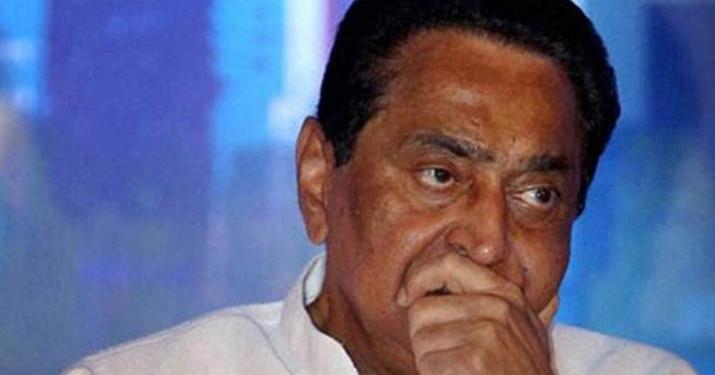Delhi Sikh Gurdwara Management Committee president Manjinder Singh Sirsa has claimed that the Union Home Ministry has directed the SIT to reinvestigate the case against Kamal Nath of his alleged involvement in 1984 Sikh genocide. Sirsa made the claim based on a Home Ministry order dated 9th April 2019 which has now come to light and according to which the Home Ministry has empowered the Special Investigation Team (SIT) related to 1984 anti-Sikh riots to re-investigate cases which have been previously closed. According to Sirsa, the Home Ministry’s order came after DSGMC has made a representation to reinvestigate the cases against Kamal Nath.
Manjinder Singh Sirsa, Shiromani Akali Dal: Union Home Ministry has asked the SIT to inquire the closed cases of 1984 riots to investigate afresh case against Madhya Pradesh CM Kamal Nath. pic.twitter.com/qiN8ccvPyF
— ANI (@ANI) June 15, 2019
Shiromani Akali Dal has welcomed the move and stated that “Now with re-investigation of the case, Kamal Nath will surely go to jail like Sajjan Kumar who too was enjoying Z+ security due to Gandhi family. His involvement in the 1984 Sikh genocide will be proved in the court after completion of fresh inquiry against him.”
MS Sirsa, Shiromani Akali Dal: Now with re-investigation of the case, Kamal Nath will surely go to jail like Sajjan Kumar who too was enjoying Z+ security due to Gandhi family. His involvement in 1984 riots will be proved in the court after completion of fresh inquiry against him https://t.co/jnW6zfxlUC
— ANI (@ANI) June 15, 2019
The involvement of Kamal Nath in the 1984 case has been mentioned many times. His involvement in the 1984 case is well documented by Manoj Mitta and HS Phoolka in their book titled- When A Tree Shook Delhi. In a chapter of the book titled- A Tale of two Gurudwaras– the authors write, “Rakab Ganj Gurudwara, despite being across the street from Parliament House, was subjected to a prolonged siege in which its periphery was damaged, and two Sikhs were roasted alive. The attack on Rakab Ganj Gurudwara was also remarkable for the fact that it was probably the first, and so far, the only instance in the history of mass violence in India, where a political leader admitted to being on the spot. And such an instance ironically occurred in the immediate vicinity of India’s parliament.”
The leader in question here is MP Cm- Kamal Nath. In the past as well, he was allotted several key portfolios in UPA government, and he is one of the senior leaders of the party.
Rakab ganj Gurudwara was close to Teen Murti Bhawan where the dead body of Indira Gandhi was kept for darshan. Mourners had been crying “khoon ka badla khoon (blood for blood)”. People were certain about the presence of Sikhs at Rakab ganj Gurudwara, and therefore it came to be the target of the mob.
What’s shocking about all this is the presence of Kamal Nath at Rakab ganj Gurudwara where two Sikhs were burned to death. Kamal Nath’s presence there was confirmed by two of the senior-most officers, Commissioner Subhash Tandan, and Additional Commissioner Guatam Kaul, as also by an independent source, The Indian Express reporter, Sanjay Suri. According to Suri, Kamal Nath was ‘controlling the crowd’ which he said was ‘looking to him for directions.’
In his book titled 1984: The Anti-Sikh Violence and After, Sanjay Suri writes, “Kamal Nath and that crowd had a connection; he signalled, they listened. And they were only likely to respond to him if they were from the Congress party and accepted him as their leader, not just any leader.”
Manoj Mitta and HS Phoolka in their book titled- When A Tree Shook Delhi writes that on November 3, The Statesman referred to Kamal Nath’s presence at Rakab Ganj while analyzing the carnage: “Policemen criticised the role of politicians too. Several councillors, they alleged, interceded on behalf of violent mobs when policemen tried to stop arson. Officers wondered what Mr Kamal Nath was doing at Rakab Ganj.”
In fact, Kamal Nath himself acknowledges his presence at Rakab ganj Gurudwara when he was served a notice by the Nanavati Commission almost two decades later.
It has been alleged that Kamal Nath has not been punished for his role because of lackluster approach adopted by the UPA government, and lack of evidence against him. The Nanavati Commission said, “In (the) absence of better evidence, it is not possible for the commission to say that he had in any manner instigated the mob or that he was involved in the attack on the gurdwara.” So, basically, he received the benefit of doubt.
Several key Congress leaders were accused of instigating mobs including former union minister HKL Bhagat, Congress leaders Jagdish Tytler, Congress lawmakers Lalit Makan and Dharam Das Shastri. Now, with the re-investigation of the cases by SIT which has been closed in the past, the culprits of the Sikh genocide will be brought to justice one by one even the ones who have evaded their comeuppance for long due to their close proximity to erstwhile power centers.

























